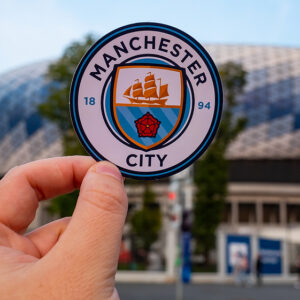The English Premier League has been thrown into a profound crisis by what appears to be a remarkable set of rules violations by one of its most storied teams, Manchester City, known as Man City or simply City.
The accusations form one of the most serious scandals in soccer history — certainly in the history of the Premier League, widely regarded as the world’s top soccer league and one of the most elite professional sports leagues.
Manchester City is the league’s current champion and one of the favorites to win this season’s European Champions League. It is now accused of a massive laundry list of financial and other violations.
As the New York Times reported, the violations range from failing to report the team’s actual financial position to not disclosing payments made to players and coaches.
Michael Epstein, a New Jersey attorney, points out how serious these charges are. “Given that Manchester City has been accused of over 100 Premier League violations, the team could be facing a sort of soccer death penalty — being removed from England’s top league.”
Ultimately, the issue here won’t be what can happen to Man City but what will happen.
Samir Patel, a Miami sports lawyer, thinks that money will override other factors in making the Man City decision. “In today’s day and age, the integrity of the game is not important. The only thing that can damage leagues is their response to societal issues. Maybe Man City will take a one-year hit to its reputation and revenue, but everything will return to normal.”
Patel is right. We need to remember what went viral in our social media cycles and why it did. What’s going on with Man City right now will sooner rather than later become just a footnote, no matter what the penalty ends up being.
Yet, having won four of the last five Premier League championships, these allegations will have the world look carefully at Man City’s legacy. The charges go all the way back to 2009, the year after the purchase of the team by a consortium of Abu Dhabi investors.
The team was bought from Thaksin Shinawatra, a former prime minister of Thailand. The purchase marked a transition to an era of genuinely massive spending intended to make Man City one of the world’s most successful soccer teams.
While the on-field part has been an enormous success, as happens far too frequently in sports today, notions of fair play are overridden by teams and leagues doing a calculus as to what they can get away with. Instead of just doing the right thing, everything becomes a risk analysis and a fight for often unfair competitive advantage.
How this sports scandal unfolds over the coming weeks will set the trajectory for a club, a league, and a rapidly-growing domestic and international fan base.

